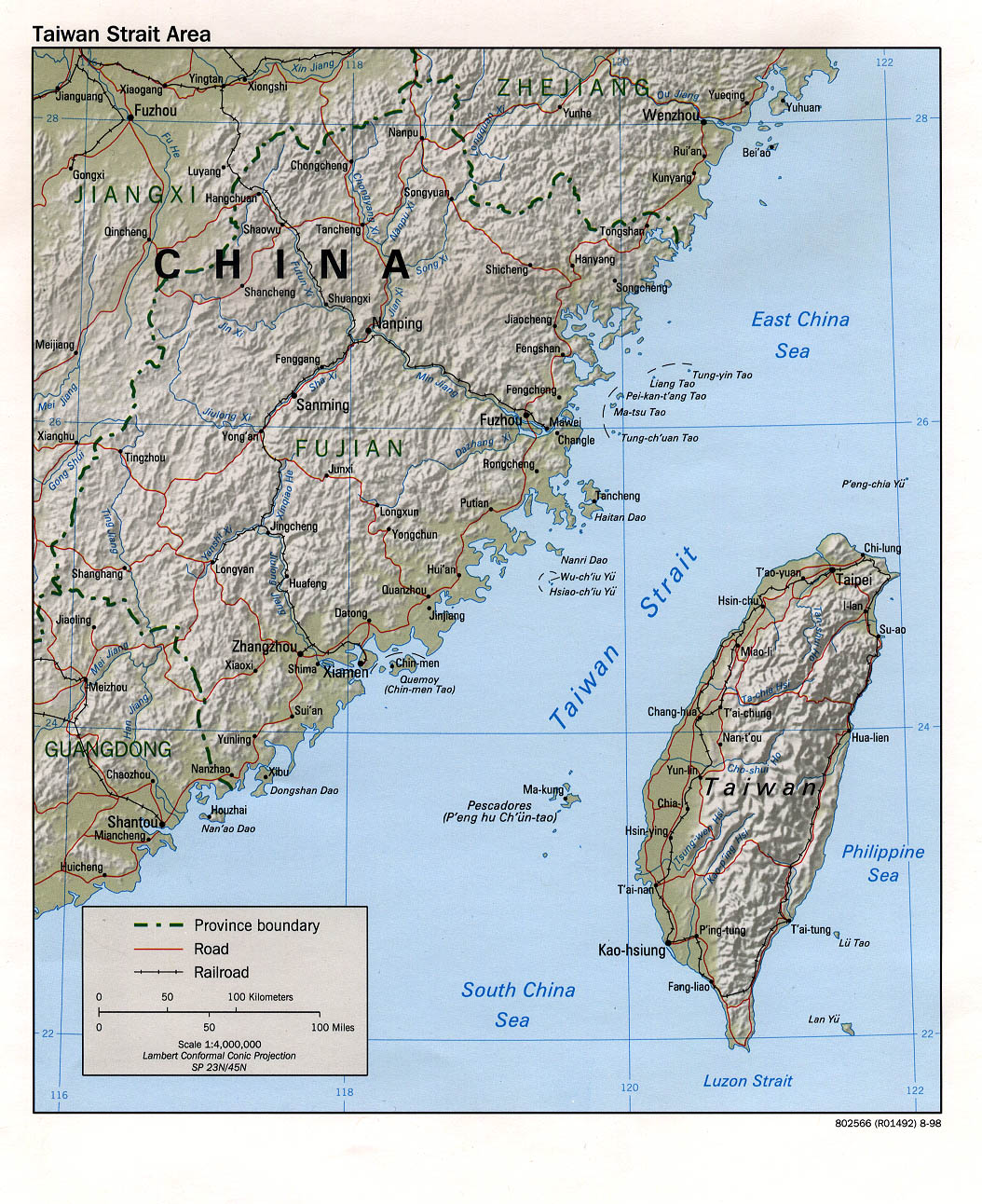I have blogged recently about Chinese nuclear weapons and Chinese nuclear policy. One problem that China does not have to deal with is the threat of a Taiwanese nuclear bomb but that was not always true.
Following the successful Chinese Communist Revolution which ended in 1949, the losing side fled to the island of Taiwan and declared themselves to be the "real" Chinese government. Since that time, the Communist Chinese on the mainland and the Chinese on the island of Taiwan have been hostile to each other with occasional confrontations between them The U.S. recognized the Taiwan government as the legitimate government of China and provided military support against mainland Chinese aggression in the decades after World War II. The Peoples' Republic of China on the mainland basically forced the rest of the world through diplomatic means to recognize them as the nation of China.
When China tested its first nuclear bomb in 1964, Taiwan felt pressured to respond. Taiwan feared Chinese nuclear weapons and began development of nuclear weapons a few years after the first Chinese bomb test. There were occasional skirmishes between the air forces of both nations and, with a Chinese nuclear bomb, an escalation of all-out war between China and Taiwan would result in the devastation of Taiwan. Fearing a loss of U.S. protection, Taiwan realized that if it had nuclear weapons, China would be much less inclined to invade them.
Taiwan began developing its own nuclear weapons officially in 1967 using nuclear research as a cover. They bought a big heavy water nuclear reactor from Canada in 1969. The U.S. was concerned about a Taiwanese bomb and tried to prevent plutonium production by demanding that any Taiwanese reactor abide by the rules set by the International Atomic Energy Agency guidelines to prevent plutonium production.
The Taiwanese reactor began operating in 1973 with technical assistance from United States, Germany, France, Norway, and Israel. The U.S. supplied the heavy water for the reactor and South Africa supplied the uranium. Taiwan began work on generating sufficient plutonium for their weapons program in spite of promises made to abide by the IAEA rules.
In 1975, the U.S. CIA announced that the Taiwanese were indeed working on nuclear weapons and that they would be able to build their first nuclear bomb by 1980. In 1976, the IAEA inspected the Taiwanese nuclear facilities and discovered evidence that Taiwanese did have a nuclear weapons program. The U.S. immediately lodged a protest and Taiwan promised to refrain from any work on reprocessing waste from the reactor to extract plutonium. Over the next few years, the U.S. detected weapons related activity on multiple occasions and lodged new protests that ultimately forced Taiwan to stop its nuclear weapons work.
The U.S. formally recognized the Peoples Republic of China as the only legitimate government of the Chinese people in 1979. However, the U.S. has continued to be a friend to Taiwan and to counter-balance Chinese military threats against Taiwan since then.
After abiding by their promises with respect to nuclear weapons development, the Taiwanese began working on nuclear weapons again in the mid-1980s. A high-level Taiwanese defector came to the U.S. in December of 1987 with documented proof of the Taiwanese nuclear weapons program. The U.S. confronted the Taiwanese government and Taiwan finally gave up its nuclear weapons program in 1988. Analysts estimated that Taiwan could have constructed their first nuclear bomb within one or two years. Since that time, the U.S. has protected Taiwan against nuclear attack with the promise to retaliated against any attacker with its own nuclear weapons.
Taiwan was acting in what it believed to be its self-interest in developing a nuclear program to counter the nuclear weapons program of China. However, any nuclear exchange between Taiwan and China would have resulted in the complete obliteration of Taiwan. It the end, the current arrangement is far better than Taiwan having its own nuclear weapons.
